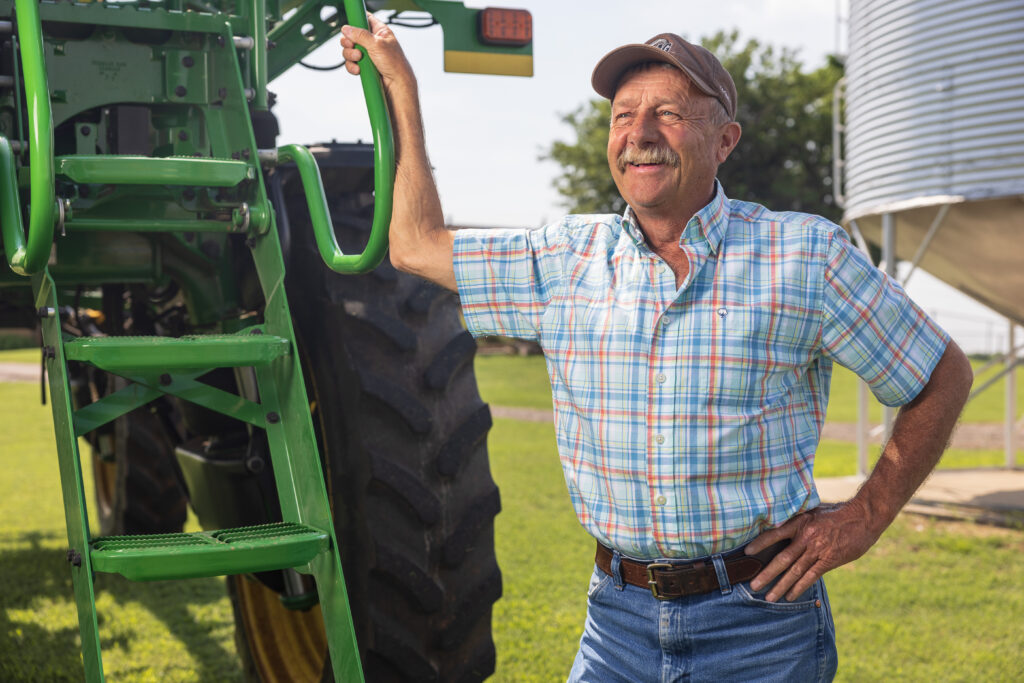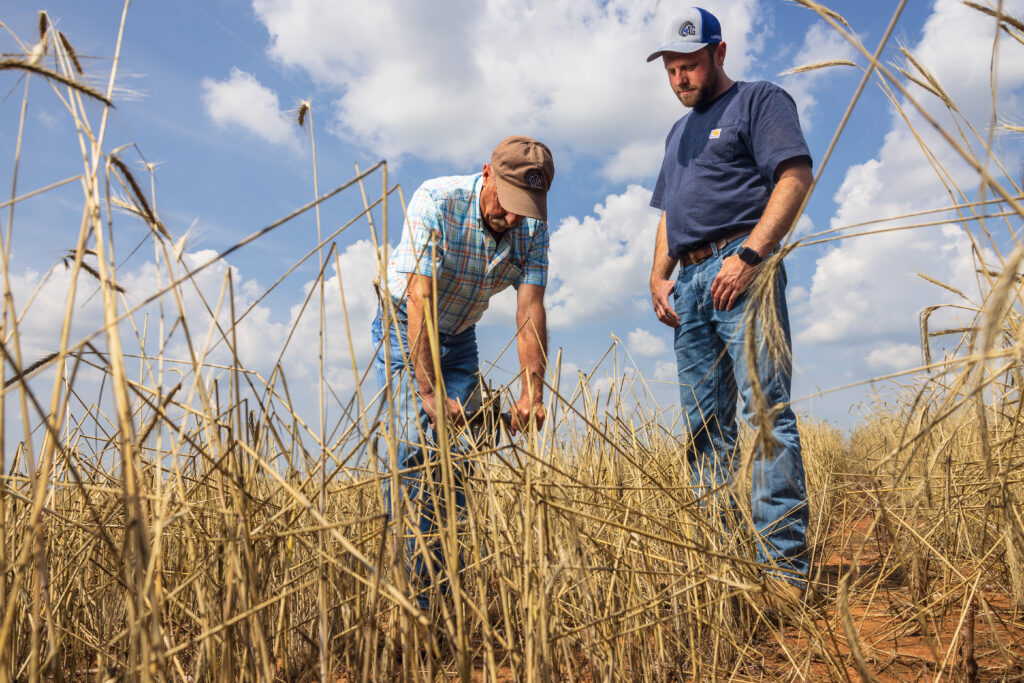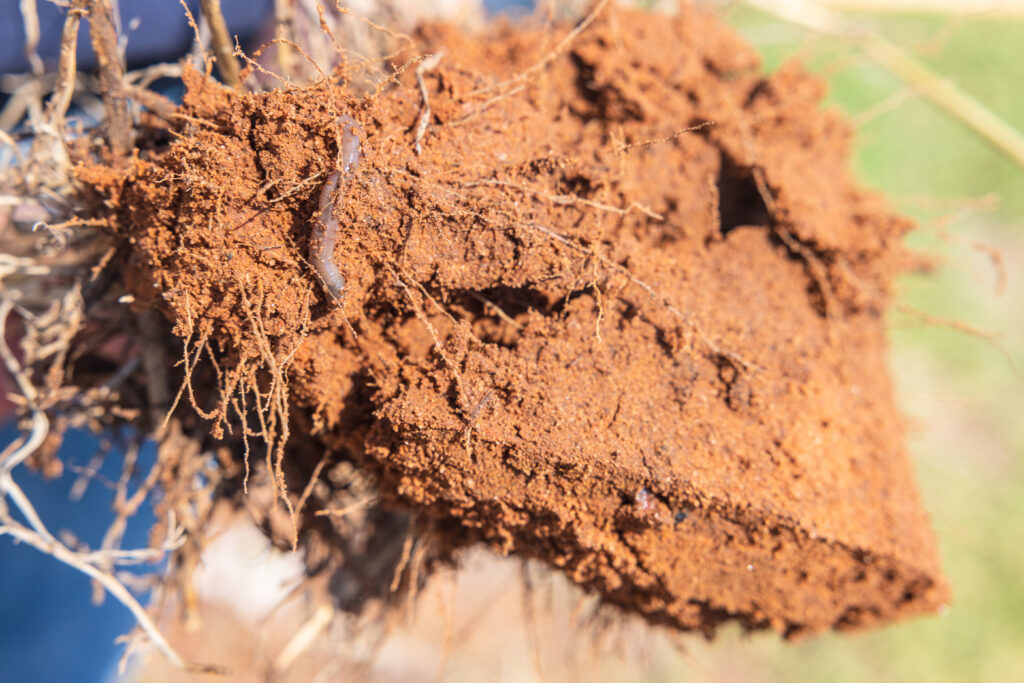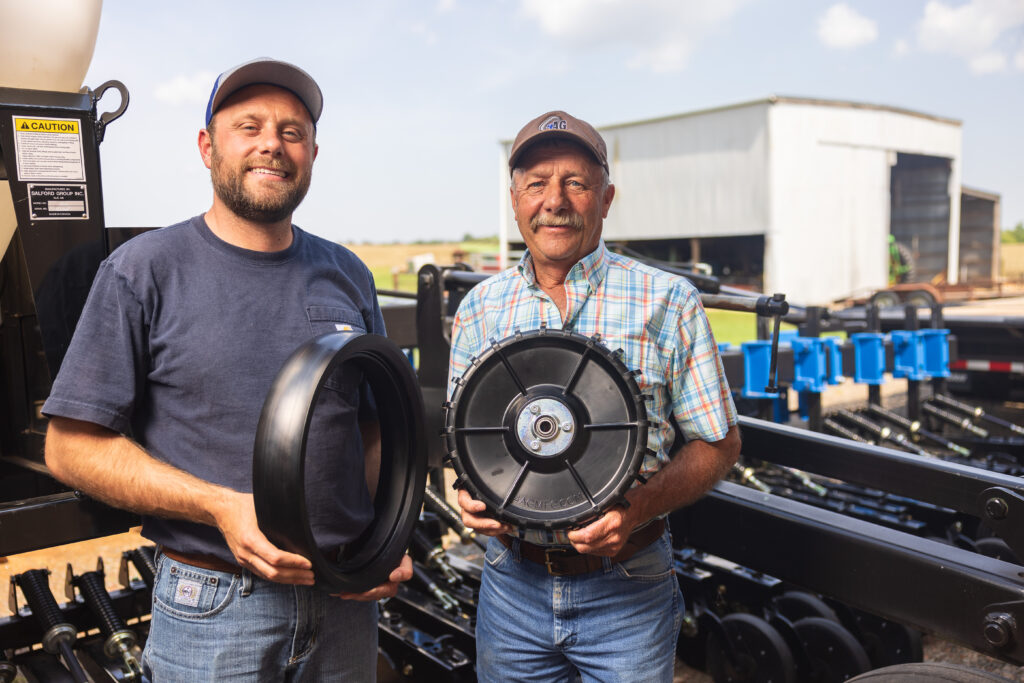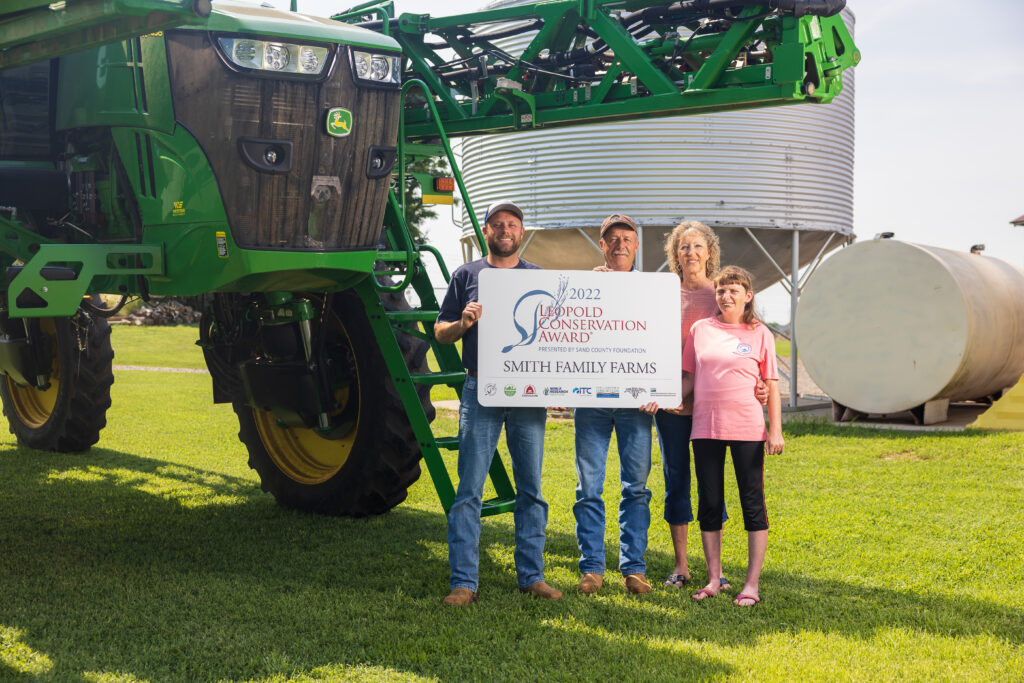
Jimmy Smith, Beckham County Farm Bureau member and third generation farmer, carries on the legacy of conservation as a cotton producer in western Oklahoma and receives the Sand County Foundation Oklahoma Leopold Conservation Award.
From the Summer 2023 issue of Oklahoma Country magazine
Story by Krista Carroll • Photos by Dustin Mielke
As the first stewards of our natural resources, farmers and ranchers have long been at the forefront of protecting one of the most crucial elements of their operations – the land. Beckham County Farm Bureau members Jimmy and Cathy Smith and their children, Calli and Spencer, have continued the family tradition of planting a rye cover crop for more than 60 years while transitioning their farming methods to no-till in 2010. The Smiths’ stewardship-first mindset led the family to be recognized as the Sand County Foundation Oklahoma Leopold Conservation Award recipients in 2022.
Jimmy is the fourth generation to work the land on his family farm, which was started by his great-grandfather in 1913 in Elk City. Jimmy and his son, Spencer, work together to plant and harvest cotton and rye on the Smith Family Farm, which has grown to roughly 2,000 acres. Although Jimmy has long since improved the conservation practices on his farm, he was not the first in his family to realize the importance of soil health.
His great-grandfather was the first to use cover crops in their early days of cotton production following the Dust Bowl years in Oklahoma.
While land stewardship and conservation practices are important, they bring their own set of unique challenges. Conventional tillage farming terminates weeds with tillage equipment but can often lead to greater soil erosion and eventually diminish the organic matter and overall soil health. Herbicide application has become a necessary addition for the Smith family after switching from conventional till. As a steward of Oklahoma’s natural resources, Jimmy is quick to say he sprays the needed amount in only the most ideal weather conditions.
In an area of Oklahoma where the soil is drier and rain is less frequent compared to the rest of the state, water retention in the soil is their greatest priority.
“When we start planting, we are always chasing moisture,” Spencer said. “Any bit of shade that we can have to gain a few days is more valuable than anything.”
Using cover crops and no-till farming has increased the water retention rate within their soil compared to surrounding farms that do not use the same conservation practices, Jimmy said. Rainwater runoff has decreased dramatically and more of the rain soaks into the soil because of no-till farming and planting cover crops, he added.
“If we didn’t plant cover crops we couldn’t plant cotton year after year in the same places,” Jimmy said.
In a state where the wind comes right behind the rain, wind erosion is a problem for conventional-tillage farmers, but cover crops help to keep the soil in place even in high-wind conditions, Jimmy said.
“We get a lot of wind out here,” Jimmy said. “When the cover crop is there, it creates a barrier so the wind cannot hit the cotton stalk. Back in the day when we were conventional till, a windstorm would destroy the cotton and there would be no leaves left.”
The Leopold Conservation Award was awarded to the Smith family in 2022, and Jimmy said the family is proud to be recognized for their conservation efforts. After looking through the list of past recipients, Jimmy realized that not many cotton farmers have received the award, which only adds honor to be selected.
Jimmy credits some of his success as a no-till cotton farmer to his involvement with the Beckham County Natural Resources Conservation Service board. He has been able to learn from farmers across the area to enhance his conservation methods. Jimmy and Spencer also host field days at their farm to educate others on their no-till operation through their county NRCS board. The field days allow them to teach others about their operation, and the family learns how to better serve as farmers and conservationists.
As no-till cotton farmers, the Smiths realized how the remaining cotton stalks from the previous year’s crop caused damage to the planter tires the following season during planting. Jimmy worked with other local farmers to create 4Ag – a company that builds sturdier planter tires that outlast the original rubber tires that manufacturers install. These new polymer-based tires withstand the cotton stems better than the traditional rubber tire.
“We were having to replace our tires every single year, which is a horrible thing to have to do,” Jimmy said.
With 4Ag’s plastic-based tires, the wear and tear upon the planter tires is minimal when compared to traditional planter wheels.
Innovation often includes challenges that can lead to even greater innovation. For the Smith family, that truly is the case. In southwest Oklahoma, the hot summer sun combined with dry, sandy soil, shallowly planted cotton seeds and the smooth surface of the soil caused the ground to form a thick top crust where the cotton was planted. This challenge led to the Smith family developing a planter closing wheel that covers the seed trench well but leaves the surface of the ground slightly roughed up – helping decrease the likelihood of the soil hardening after planting is complete.
The Smith family has seen the improvement of their farmland firsthand, but that is not to say the process is quick or easy. Nearly five years ago the Smiths bought a farm that had been farmed using conventional tillage, and the difference between their no-till property and the new purchase was distinct.
“It takes about four years farming how we farm to see the benefits of what we do. You have to build up the organic matter and that takes time.”
Spencer Smith
Although the change is not quick, the benefits to the soil health serve as a reminder that conservation-focused farming is a long term benefit, Jimmy said.
“The change doesn’t happen overnight,” Jimmy said. “It takes time.”
